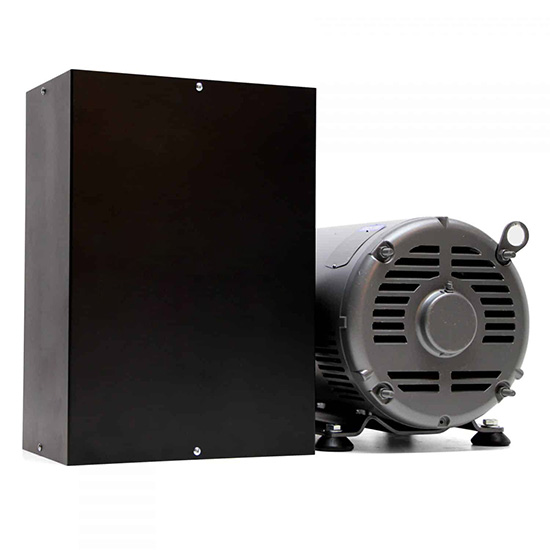Everyday we get hundreds of calls with questions about phase converters. So, we thought we would take a moment and go over the top 5 things you should know before buying a phase converter.
As you can see, there are a few basic things you should know before buying a phase converter.
1.Make sure you have enough single phase power.
Here’s how to calculate how much single phase power you need:
Take the amount of three phase amps of your load x 1.6 = amount of single phase amps. Then, take the amount of single phase amps x 1.2 = required single phase amps with 20% adder. The 20% adder is factored in as a cushion simply because most towns and cities require you have 20% above what your load is.
2.Understand your load.
Is it light, medium, or heavy? To give you an idea, a light load would be something like a drill press or table saw. A medium load would machines similar to CNC machines. A heavy load would be things like HVAC, air compressors, and refrigeration.
3.The size of your load.

Know the horsepower, amps, and kilowatts. Knowing this will help you find the best phase converter for you. As a rule of thumb, you want to go 2:1 (2 times the size of your load) to find the size phase converter you need.
4.Indoor or Outdoor?
Make sure you buy a phase converter that will stay protected in the environment it will be in. For example, if you do welding you will want to make sure your converter stays protected from metal shavings. Likewise, if you are a woodworker, sawdust. If you are a farmer, you want to make sure your equipment is protected in wind, snow, and rain.
5.Who are you buying your phase converter from?
Make sure you are buying from someone who is reputable. We get calls all the time from people who previously bought a phase converter from someone who made one in their garage and it’s not working right and they have no service. By using a quality product to begin with, you will be able to get the exact amount of three phase power you need, protect your equipment, and be able to scale appropriately as needed.
